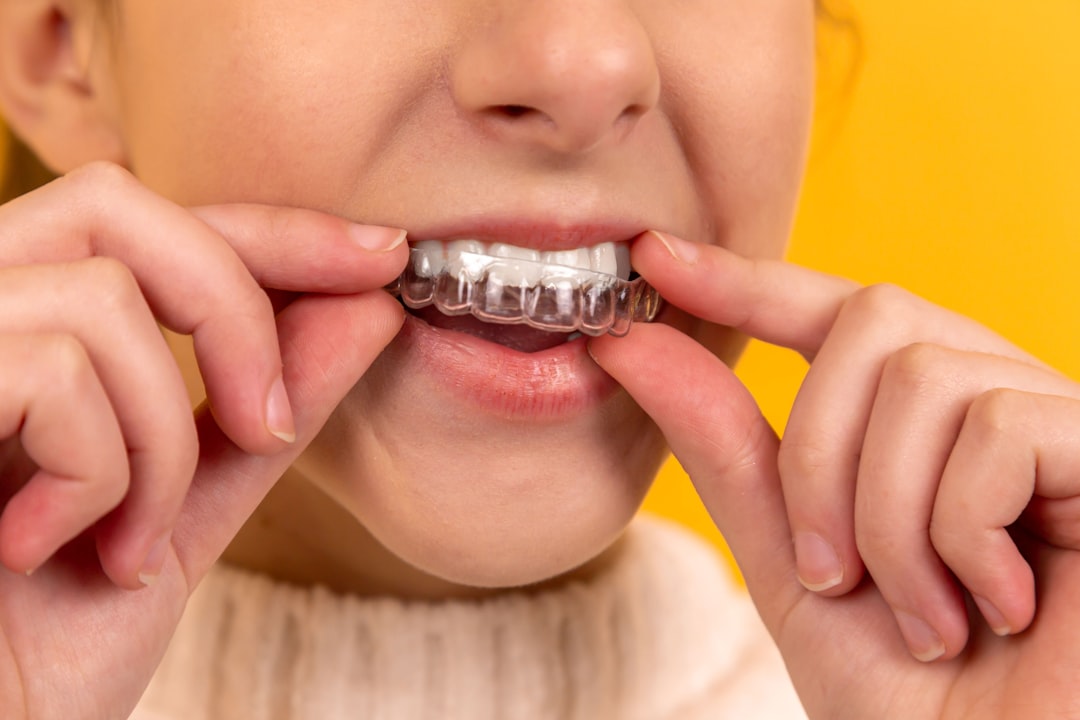Tongue biting can be a frequent issue that affects millions of people
Tongue-biting is a common habit that many people exhibit while they're asleep. In fact, it's estimated that up to 70% of adults exhibit some form of nighttime biting. This behavior can have a number of negative impacts on your health, including affecting your sleep, contributing to dental problems, and even leading to conditions like sleep apnea. If you have sleep apnea and smoke, one treatment you can try is quitting smoking.
The reasons why people bite their tongues while they're sleeping are varied and complex. Some people do it as a way of controlling their emotions or as a way of relieving stress. Others do it out of habit or because they're experiencing anxiety or pain. Regardless of the reason, biting your tongue can have serious consequences for your health and well-being.
Do you struggle with biting your tongue in the middle of the night?
Dentists often hear complaints of people biting their tongues or cheeks when they're asleep. This can be uncomfortable and even painful, and the more you do it, the worse i becomes.
Why do I constantly bite my tongue?
The habit of biting your tongue from time to time can happen. If, however, you're continually biting your tongue during sleeping, it might be a more serious issue like a misaligned bite or a tongue swelling, or even problems from TMJ.
The harm done to your tongue can be very painful and can also be visible. If you're someone who bites your tongue when sleeping typically you bite it along the sides or close to the edge. This can cause inflammation and even damage to the soft tissues of your tongue.

Biting your tongue can also lead to other problems, including:
- Infection: Biting your tongue can lead to an infection if the bacteria from your saliva gets into the wound.
- Jaw Clenching: Jaw clenching during sleep is a common sign of TMJ, which is a disorder of the jaw that can cause pain and difficulty opening the mouth.
- Tooth Loss: If you're biting your tongue often enough, it's also possible that you're putting stress on teeth and contributing to tooth loss.
- Tongue Swelling: If you bite your tongue often enough, it can swell and cause problems with speech and swallowing.
- Pain: If you bite your tongue often enough, it can cause pain and soreness.
Read on to discover what you can do to stop your habit and live a healthy life. Here are some common causes and solutions. Learn more about Rhythmic movement disorder and the role of nicotine chemicals.
Nicotine is a chemical found in cigarettes and other forms of tobacco. It can be addictive, and it can have effects on the body that depends on the person. Some people who smoke develop Rhythmic movement disorder (RMD), which is a type of sleep disorder. RMD is marked by abnormalities in the patterns of movement during sleep. These abnormalities can make it hard for people to get a good night's sleep, and they may also lead to problems with their day-to-day activities.
Rhythmic movement disorder
If you find yourself gnawing on your tongue while you sleep, you could have Rhythmic movement disorder. In some cases, medication is prescribed to treat this disorder. If it continues, you should seek a medical diagnosis.
If you find that you or a loved one has this disorder, you should seek medical care immediately. Most cases of rhythmic movement disorder go away without treatment. However, if you have Lyme disease, you should consult a doctor to get a proper diagnosis and treatment. In such cases, antibiotics may be required for treatment. Using a mouth guard could prevent the symptoms of rhythmic movement disorder from occurring.
Morsicatio linguarum
Many people don't realize that they're damaging their tongue while they sleep. While you may not notice it, clenching or grinding your teeth while you sleep can exert more than 250 pounds of force, damaging the soft tissues of the tongue. Mouth guards can help reduce the force of bites by acting as a buffer between the upper and lower teeth.
This condition is common but rarely recognized. Dermatologists have little experience with it. It's also rarely described in pathologic or dermatological textbooks. Usually, this condition regresses after the habit ceases. While it can be a symptom of a larger underlying disease, it's not considered malignant. The cause of biting your tongue while you sleep is unclear.
Malocclusion
Malocclusion is the medical term for a misaligned set of teeth. It affects how the teeth fit together, and this wears the teeth down over time. People with malocclusions are more likely to grind their teeth, which is not a conscious habit. During sleep, people grind their teeth, causing them to wear down their teeth more than normal. Consequently, these people have a harder time chewing and are more prone to gum disease and tooth decay.
Bruxism is also common. While it may sound harmless, this habit can affect your oral health. When you grind your teeth, the jaw muscles tighten and the tongue becomes restricted. Malocclusion can also lead to other symptoms such as pain and infection. Fortunately, there are plenty of treatment options for bruxism. However, if the condition is severe, you may need more aggressive therapy to address the cause of your bruxism.
Using a Custom Night Mouth Guard to Protect Your Tongue During Sleep

Whatever the reason for biting your tongue, custom night guards allow you to shield yourself from further damage. These are non-toxic, BPA-free plastic mouth pieces designed to be fitted over your teeth. If worn, they assist to minimize the risk of injury to your tongue. Remi custom-fit mouth guards are designed by our in-house labs in order to fit your mouth precisely. You create the impression of your teeth in the comfort of your home and send them back to us in the package you received them in. Remi's easy mail-order service makes ordering your custom dental night guards easier than ever.













